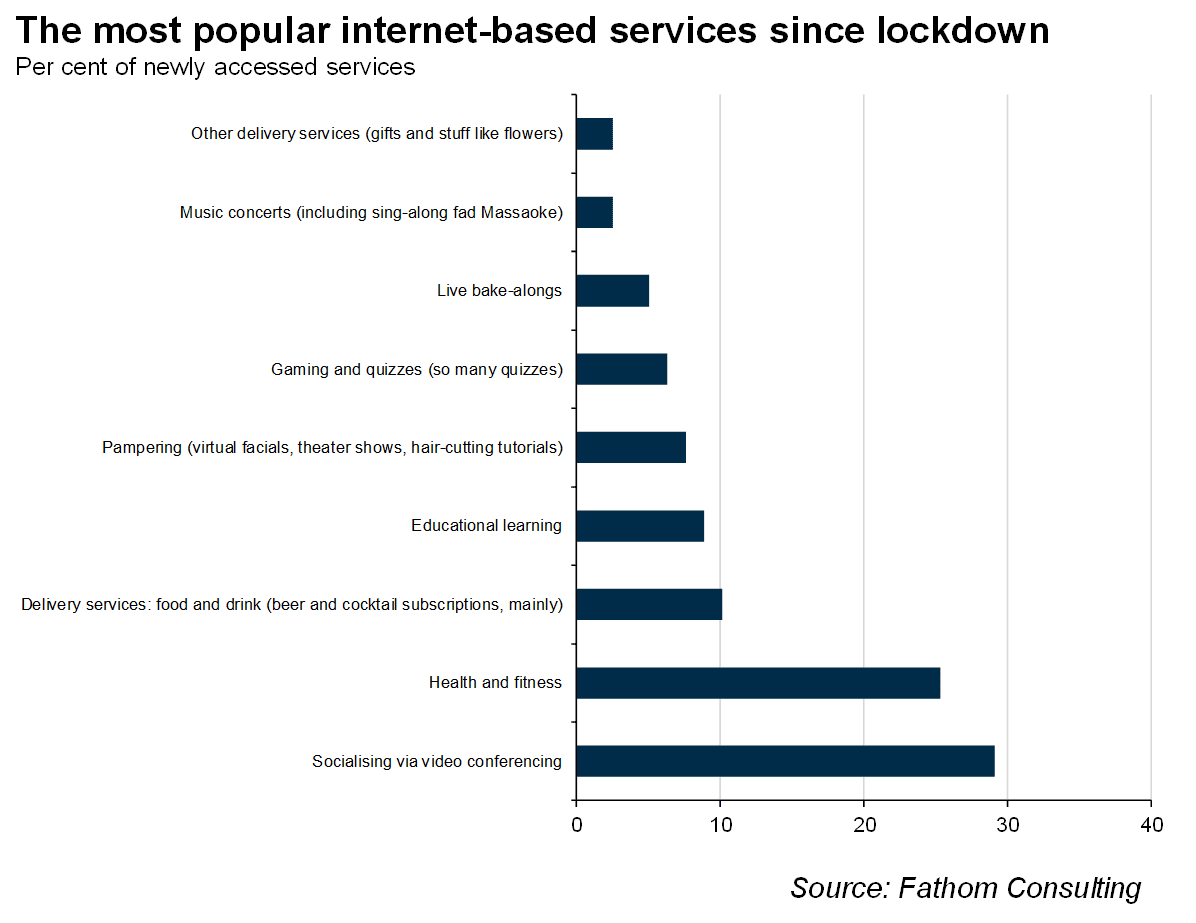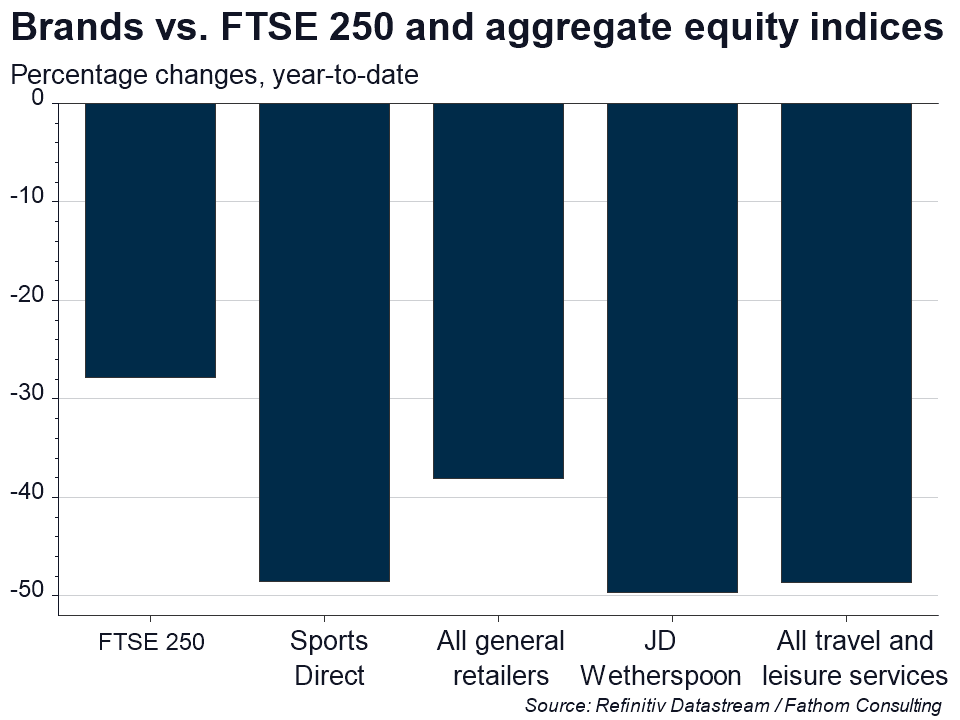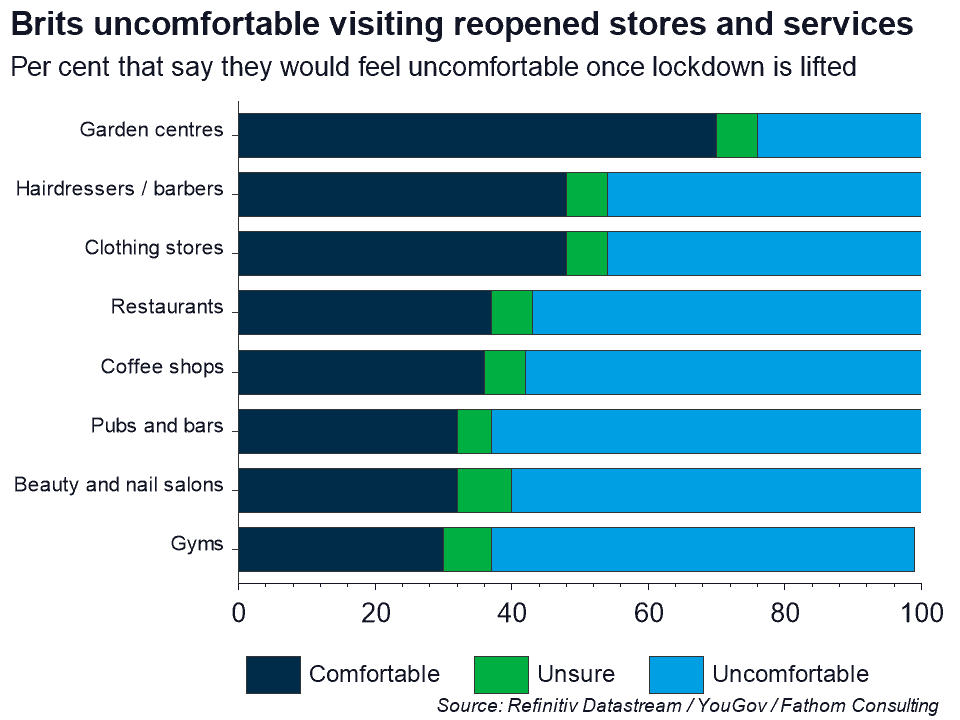A sideways look at economics
“Flick, flick, claw, claw, holding spoons, da, da, da-da-da” were the instructions shouted through the ether by the remote dance teacher on Instagram Live last Saturday. Bearing in mind that I haven’t voluntarily taken a dance class since junior school, it was surprisingly enjoyable. To this day, when the song ‘You’re the one that I want’ comes on the radio, I feel like donning my ‘Pink Ladies’ jacket, collar up, and recreating my junior school dance moves. I have no idea if, after Saturday’s class, Dua Lipa will provide similarly fond memories, but I hope so!
It seems that I’m not the only one embracing online activities to help pass the time, with some of the most popular distractions[1] being video conferencing and health and fitness classes, such as PE with Joe (aka the Body Coach). Others are taking the time to learn, mainly languages, while I’ve indulged in weekly theatre shows streamed for free by the National Theatre, remote yoga lessons and virtual facials. All are home-based activities that I hadn’t even considered prior to lockdown.
After all, it’s not every day that a holistic beauty therapist (in this case, Suki, from White Willow Health & Beauty) transforms into an artful puppeteer during her ‘Friday Facial’ sessions, guiding your hands from the prayer position above your nose, across your cheek bones and around your eyes in a bid to reduce puffiness.
But it’s not all been holistic. By week five of lockdown, I think it’s safe to assume that we all know Carole Baskin is ‘guilty’, a reflection that binge-watching the TV remains a popular hobby and that working from home isn’t so bad after all!

In a strange way, despite the enforced distance, people seem more ‘available’ than before. There are birthday brunches over Zoom, three quizzes in just as many days, and access to on-tap expertise as small business owners harness the power of social media, sharing their knowledge with the nation.
In recent weeks, in addition to the dance class, I’ve enjoyed live cook-alongs (with a cake and ganache made in 29 minutes, it was more of a sprint than a bake, but I guess any exercise counts) and rapid-fire DM exchanges (ever wondered why your much nurtured sourdough resembles a pita, @theboywhobakes has the answer).
But all that got me thinking, what’s in it for them?
Based on my survey of friends and family, just 14% of the additional services enjoyed since lockdown are fee-based, with even fewer, at 4%, requesting donations. Some are banking on the sale of merchandise, such as quickly-thrown-together e-books containing their best recipe repertoire, but on the whole this new business model isn’t a money-making machine, at least not in the short term.
The independent craft brewer, BrewDog, is just one example of a company which seems to be hoping good karma will help bolster sales once things return to ‘normal’, producing hand sanitiser at its distillery in response to global shortages. This was then given to local charities and the community, rather than sold.
This hasn’t gone unnoticed, with YouGov data confirming that BrewDog’s public reputation has improved significantly in recent weeks, alongside the likes of Morrisons (after it donated £10 million to food banks and was quick to implement social distancing initiatives in-store) and M&S (for similar reasons).
In contrast, after less than stellar initial responses, both the brand images of both Sports Direct and JD Wetherspoon have taken a battering, and so too have their share prices. Both have underperformed the FTSE 250 and their sector as a whole, although only marginally in the case of ‘Spoons which falls under the ‘travel and leisure’ umbrella.

But what about the little guys? Those that are less capable of pulling off the marketing stunts used by large corporates, or indeed swallowing the cost associated with them in the hope of good things to come? The loan scheme guaranteed by the government is unlikely to come to the rescue of small independent businesses like yoga studios. Or, as it happens, small economic consultancies.[2]
For years, high street retailers have been under threat from online stores, progressively losing market share as they struggle to compete on value for money. And since MIFID II, research providers like Fathom have lost out to larger competitors as predatory pricing eats into already slim profit margins. Such processes have gone on for centuries, but the speed at which change brought on by recent events has happened feels altogether more shocking.
Small service providers, specifically those with little differentiation besides location (and therefore convenience), have lost their edge almost overnight. In other words, they have become increasingly substitutable. At the same time, and perhaps in a bid to counter that initial impact, there has been a race to undercut, with virtually everyone now offering some (if not all) of their time for free. No doubt that has involved making strategic decisions, perhaps offering low or zero marginal cost services for free, while still charging for others. Fathom’s Recession Watch is one such example.
In industries with relatively low barriers to entry and greater asymmetry of information between service provider and recipient (making it difficult to discern a good service from a bad one), the risk of substitution is greater still. Troublingly, around 60% of those I surveyed said they wouldn’t be willing to pay for the services they’ve enjoyed since lockdown while so many others are available for free. But, as Fathom’s Chief Economist rightly pointed out, from a glass half full perspective that could be read as 40% would be happy to pay!
Notably, the proportion reluctant to pay halved when asked about their willingness to pay for a remote service or activity if it were provided by a local business or family friend, perhaps demonstrating the power of customer loyalty and the ‘shop local’ campaign in defending against substitutability. For some, there could even be an upside, with the current environment enabling wider audiences to be reached and class numbers to swell beyond the limitations of a physical studio or office space.
One thing is for certain, we’re unlikely to return to the old ‘normal’ any time soon. Besides, it seems us Brits are reluctant to put the gardening tools down and get back to the gym!

[1] Within my circle of friends and family.
[2] After weeks spent entwined in the application process, Fathom was refused a loan as it’s not on the cusp of bankruptcy. In other words, as a business, we still have legs! The message: despite the rhetoric, those looking to apply from a precautionary perspective need not bother!